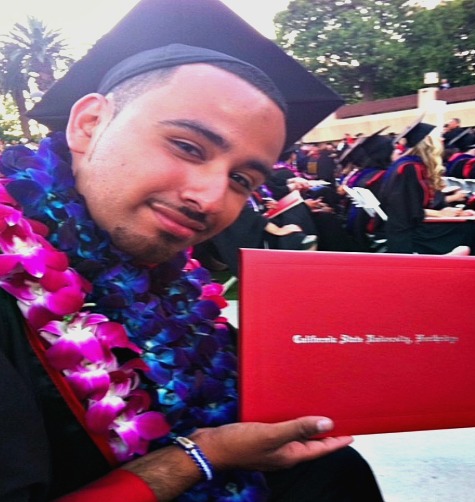No one wanted to ever receive that faded yellow slip that meant you had to go see Mr. V. Though I was fortunate enough to have never been summoned into his office before, my “homeboys” had always walked out of there with detentions, suspensions, or even subpoenas. So when I received one of these slips late my senior year of high school, my palms became greasier than the platano fritos mom made every morning.
Mr. V. was our school’s guidance counselor and as I took that dreaded walk towards his office, I thought to myself, “Why do they call him a ‘guidance’ counselor?”
In all my four-years attending that school, I had never had a personal interaction with him, let alone received any of his guidance. As I entered, he presented me with two letters that had been sent straight from the governor. In his words, “Apparently you have earned two Governor’s Scholarships for scoring in the top ten percentile of the state in your standardized tests for your sophomore and junior year.” After handing me some documents and stoically returning to his computer, I stated, “Thanks for the guidance.”
Okay, maybe I did not say that aloud, but maybe I should have.
Unfortunately, I was unaware of SAT and college application deadlines and did not complete the appropriate paperwork to go to a four-year university. Therefore, I was not able to take advantage of those scholarships as I could have. I lived with the onus of this missed opportunity for years. Not only would I go on self-guilt trips, but I also felt a level of resentment towards my mother.
But who is really to blame?
Robert Balfanz of John Hopkins University has found that there is a dropout epidemic in America. His research was given a spotlight in the critically-acclaimed documentary Waiting for Superman where the term “dropout factories” was used to indicate high schools that have less than 60 percent of their freshman make it to senior year. You guessed it. I attended one of these “dropout factories”. Though I know that I could have advocated more for myself, I also know that just making it out of such a school was an accomplishment.
Shouldn’t my mother have been more involved? Could you expected a single-mother of five living below the poverty line, who did not speak English to have the know-how of navigating a son through the college application process? According Child Trends Databank, only 32 percent of Latina mothers are ever able to volunteer at their child’s schools with not much more ever attending a single information meeting.
So does the burden fall on counselors like Mr. V.? To get a counselor’s perspective, I interviewed Mr. B., a counselor that attended the same high school as I did, and has served in multiple school districts. He believes that school districts vary in what they expect from their counselors. Many inundate counselors with scheduling and supervision work that makes it difficult for willing counselors to get to work with students on their academic paths. Data from Los Angeles Education Research Institute shows that counselors spend only 15% of their work week helping students with the college or financial aid application process.
If we want students in our community to rise to their potential, we must expect more from our counselors and our districts. The districts have to support willing counselors with the appropriate time and resources they need to guide students to be successful. And for the Mr. V.’s of the world, maybe school districts should consider giving them their own type of slip…a pink one.
Carlos Monzon
Latest posts by Carlos Monzon (see all)
- Ciencia en Verano: Cómo Enseñar a los Niños a amar la Materia - July 27, 2021
- Summer Science: How I’m Teaching Kids to Love The Subject - July 23, 2021
- Nuestro Momento de Enseñaza - April 3, 2020
- Our Teachable Moment - March 27, 2020
- Posee la Mañana: Preparando a Nuestros Niños Para el Éxito en la Escuela, Antes de que Entren a la Clase - January 2, 2019

